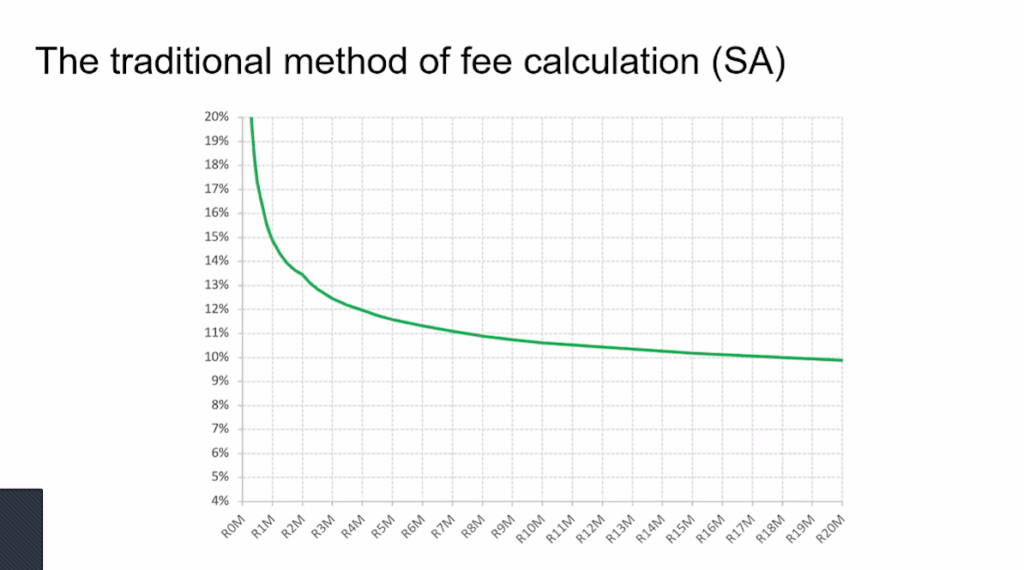Procurement is often a long and bureaucratic process, a process that has seen increased scrutiny due to corruption but one that is at the heart of economic development. There is a need for improved procurement procedures and benchmarking is a central technique in improving South Africa’s procurement process.
By Duncan Nortier According to Mosha Senyolo, vice president of the Association of South African Quantity Surveyors (ASAQS), “Benchmarking should not just be seen as a tool of comparison, but a catalyst for improvement and control in both the public and private space.”Fees and benchmarking
Professional fees are the actual fees charged and exchanged between client and contractor. South Africa relies on a sliding pay scale where the project cost is linked to the percentage charged. The pay scale is seen as a standard but in reality, the fees that are actually paid to contractors don’t align with the scale. Simon Berry is a fee specialist who says, “When the pay scale is used, the actual fees paid are far less than the scale suggests because the tender process relies on trying to edge out the competition, usually by offering the same service for less.” This makes for a confusing space where no one, client or contractor, understands and knows what is expected from a project and what the fair compensation is for that project.Benchmarking would lead to a significant improvement in both the client’s expectations and the contractor’s payment for their effort. “We tend to either view it from the client’s perspective: get as much work for as little money, or the contractor: get as much payment for as little work. This is unhelpful and we should switch to seeing it as: The payment should be fair and reflect the work done. Benchmarking is not just about cost but effort,” says Simon.
When there is a benchmark project to measure against or a standard in place all the players have clarity on how much they should pay or be paid paid, and what the results of this payment should be.Global standards
The International Construction Measurement Standards (ICMS) is a principles-based international set of standards that set how to report, group, and classify construction projectscosts in a structured and logical form. Governments and private sector companies all over the world use ICMS to measure effort, costs, and other data that is deemed relevant to a project. Carbon emission is a recent addition to the ICMS standards and illustrates its goals in staying current and helpful in the ever-changing construction sector. South Africa can learn from and even implement these global standards to benchmark its construction efforts. Using a robust benchmarking standard enables monitoring of the sector’s effort, costs, and time. This data can be used for real-time comparison and adjustments. Projects can monitor where time and costs are going and if they are wasted or well-spent. Countries that ascribe these standards can collaborate more effectively, and when there is a common benchmark between the private and public sectors it enables better partnerships between them. The benefits of benchmarking are not just evident in cost and effort monitoring but allow for a more transparent procurement process where corruption becomes easier to pinpoint.









